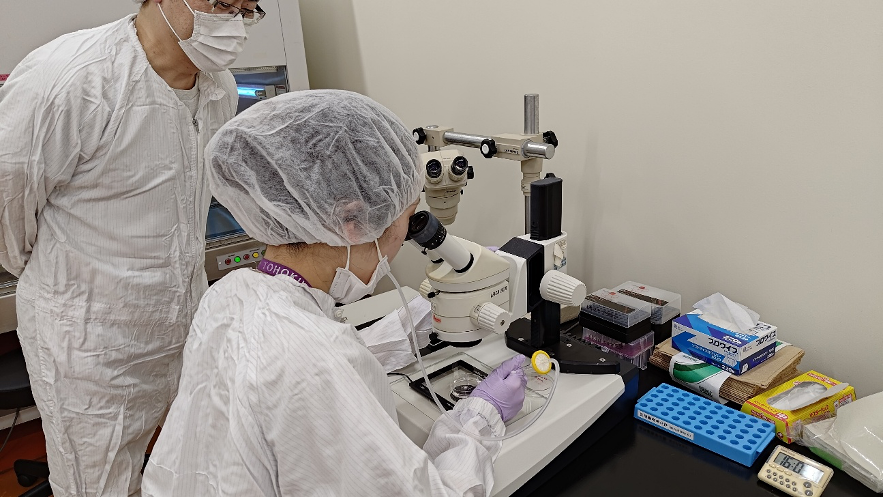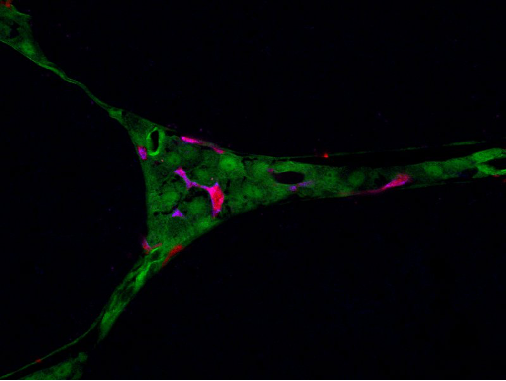医科学専攻
- Master's Courses
修士課程 - Doctoral Courses
博士課程
Laboratory Animal Medicine医用動物学
STAFF
Professor
-
Hiroshi, KitamuraProfessor.D.V.M., Ph.D. 北村 浩 教授 (兼任)

Other Faculty / Staff
-
Harada, Nobuhiko
Lect. 原田 伸彦 講師
CONTACT
TEL:+81-22-717-8175
E-MAIL:hiroshi.kitamura.d8*tohoku.ac.jp
(「*」を「@」に変換してください)
OUTLINE
Our laboratory is located in the Institute for Animal Experimentation at Tohoku University Graduate School of Medicine. We generate and analyze gene-modified animals and investigate the roles of the proteins encoded by the genes at the individual level. Our major achievements include the discovery that USP2, which modifies ubiquitination of proteins, acts as a key molecule for energy metabolism in various organs and influences the progression of metabolic disorders. We are also investigating the role of novel myeloid molecules in chronic inflammatory diseases. In addition, by comparing and integrating disease model animals created using these genetic modification techniques and humanized animals in which human cells and genes are substituted, with novel alternative methodologies (NAMs) that have been remarkably developed recently, we aim to construct new research and evaluation approaches that will lead to the promotion of the 3Rs.
私たちの研究室は医学研究科附属動物実験施設内にあります。遺伝子改変した動物を作製・解析し、その遺伝子のコードするタンパク質の役割を個体レベルで調べています。主な成果としては、タンパク質のユビキチン化修飾を制御するUSP2が様々な臓器でエネルギー代謝の鍵分子として働き、生活習慣病の進行に影響を与えることを明らかにしてきました。また複合オミックスの技術で見出されたマクロファージなどミエロイド系細胞に発現する機能未知分子の慢性炎症疾患における役割も調べています。加えて、これら遺伝子改変の技術を駆使して作製された疾患モデル動物や、ヒトの細胞や遺伝子に置き換えたヒト化動物などと、昨今開発が目覚ましい動物実験代替技術を比較・融合することで、3Rの推進に繋がる新たな研究・評価アプローチの構築も目指しています。

Generation of human disease model animals by developmental engineering
ヒト疾患モデル動物の作製現場
Visualization of testicular macrophages by gene-modification
精巣マクロファージの可視化
ARTICLE
Kitamura H. Ubiquitin-specific proteases (USPs) and metabolic disorders. Int J Mol Sci. 24(4):3219, 2023
URL:https://www.mdpi.com/1422-0067/24/4/3219
Hashimoto M, et al. Ubiquitin-specific protease 2 in the ventromedial hypothalamus modifies blood glucose levels by controlling sympathetic nervous activation. J Neurosci. 42(23):4607-4618, 2022
URL:https://www.jneurosci.org/content/42/23/4607.long
Tamai Y, et al. Association of lithocholic acid with skeletal muscle hypertrophy through TGR5-IGF-1 and skeletal muscle mass in cultured mouse myotubes, chronic liver disease rats and humans. Elife. 11:e80638, 2022
URL:https://elifesciences.org/articles/80638
Hashimoto M, et al. Macrophage ubiquitin-specific protease 2 contributes to motility, hyperactivation, capacitation, and in vitro fertilization activity of mouse sperm. Cell Mol Life Sci. 78(6):2929-2948, 2021
URL:https://link.springer.com/article/10.1007/s00018-020-03683-9
Saito Y, et al. Identification of therapeutic targets for quiescent, chemotherapy-resistant human leukemia stem cells. Sci Transl Med. 2(17)17ra9, 2010
URL:https://www.science.org/doi/10.1126/scitranslmed.3000349
